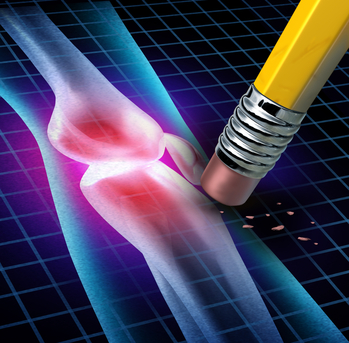Did You Know…that, contrary to popular belief, the humble potato is a nutrition powerhouse that lowers blood pressure, delivers a host of powerful health benefits—and even helps dieters in their quest to shed weight?
 Scientists are eating their words—or should I say their 2 daily servings of potatoes—due to some exciting new findings about the much maligned potato. The new exciting health benefits of potatoes is growing much attention.
Scientists are eating their words—or should I say their 2 daily servings of potatoes—due to some exciting new findings about the much maligned potato. The new exciting health benefits of potatoes is growing much attention.
Surveys have shown that next to sugar, carbohydrates like potatoes are one of the first things dieters avoid. Yet far from being a dieter’s worst nightmare, a cooked new potato provides only a small number of nutrient-packed calories.
And now, a brand-new study shows that eating just 2 servings of spuds a day reduces blood pressure almost as much as oatmeal—without causing weight gain.
The Potato’s Undeserved Bad Rap
“The potato, more than perhaps any other vegetable, has an undeserved bad reputation that has led many health-conscious people to ban them from their diet,” says lead researcher Joe Vinson. Vinson is with the University of Scranton in Pennsylvania and has done extensive research on healthful components in foods.
“Mention ‘potato’ and people think ‘fattening, high-carbs, empty calories,'” Vinson points out. “In reality, when prepared without frying and served without butter, margarine, or sour cream, one potato has only 110 calories and dozens of healthful phytochemicals and vitamins. We hope our research helps to remake the potato’s popular nutritional image.”
The Lowly Potato is Healthier Than You Think
Vinson’s study was indeed impressive. Blood pressure drops in the study participants were observed even among those already taking blood pressure lowering drugs. Vinson said that other studies have identified the health benefits of potatoes by narrowing down certain substances in the potato that has similar effects offered by the widely prescribed ACE-inhibitor medications, the high-blood pressure drug of choice. And potatoes are as loaded with other phytochemicals as the superstar health veggies… broccoli, spinach, and Brussels sprouts.
One can easily guess, however, that the breakthrough research was not focused on French fries or potato chips. That’s because high cooking temperatures destroy most of the healthy substances in a potato. What’s left behind in a grease-fried spud is starch, fat, and minerals.
The potatoes in the study were heated in a microwave oven with no oil, butter, or fat.
And the researched potatoes were also purple, since the pigment coloring in fruits and vegetables is rich in beneficial phytochemicals.
Purple potatoes are less common than other varieties, but these days they are showing up more often in supermarkets—especially health food co-ops and farmers’ markets. Besides, Vinson says he strongly suspects we’ll see similar findings from a future study (now in planning stages) using white potatoes.
Health Benefits of Potatoes – Packing A Nutritious Punch
Despite their bad reputation as a dieter’s worst enemy, potatoes may be just the opposite. A study in the British Journal of Nutrition says potatoes are not always a high glycemic food, as previously labeled. The Glycemic Index (GI) ranks carbohydrates from 1 to 100 according to how quickly the body breaks them down into simple glucose. Foods ranked lower take longer to be absorbed—and keep you feeling full longer.
That’s why dieters should seek out low GI foods including—at least in some cases—potatoes.
Research shows that a potato’s GI actually varies by type, growing area, and cooking method. Interestingly, the GI is likely lower when the spud is eaten cooled instead of warm, and when it’s boiled and eaten whole instead of mashed.
Regardless of the GI, the myriad health benefits of potatoes are much more astonishing than you might guess:
-
• Vitamin Booster—Surprisingly high in vitamin C, potatoes were eaten by 19th Century English and Spanish sailors to keep scurvy at bay. A medium skin-on potato provides almost half your daily vitamin C and is loaded with vitamin B, folate, potassium, magnesium, and iron.
• Blood Pressure—Researchers at the Institute for Food Research in Norwich discovered that potatoes are rich in kukoamines—blood-pressure lowering molecules. A few servings of potatoes a day is likely to lower blood-pressure.
• Heart Health—Potato skins are packed with 60 phytochemicals, according to the Agricultural Research Service in Navarre, Florida. Many of these are flavonoids, which lower bad cholesterol and keep arteries clear.
• Healthy Digestion—A single baked potato gets you 12% of your daily fiber, about the same level offered by similar servings of whole grain breads, pastas, and cereals.
• Mood—Vitamin B6 in potatoes contributes to cellular renewal, a healthy nervous system, and balanced mood. B6 helps produce neurotransmitters like serotonin and dopamine, both of which stabilize mood—and it helps produce GABA, linked to relaxation and well-being.
Potatoes: Dream Food for the Health-Conscious Dieter?
“A key to lasting weight loss is eating foods that make you feel full for longer,” says Dr. Jacquie Lavin, a weight-loss doctor for Slimming World. “You should eat complex carbohydrates such as potatoes, rather than simple carbohydrates like sugar or biscuits which give a short energy boost followed by hunger pangs,” she says. “In this way, potatoes can help you reduce binge-eating.”
Now, there’s good news for all of us!




